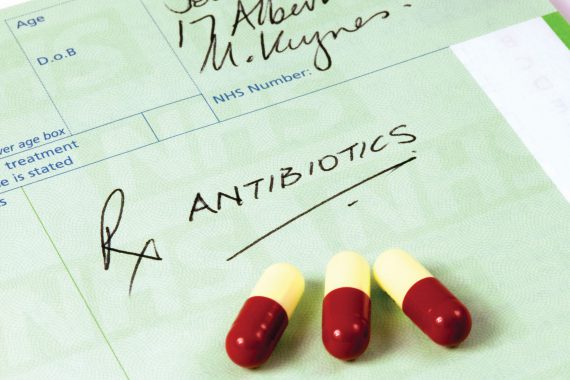Overworked GPs more likely to prescribe broad-spectrum antibiotics, finds study

GPs working under pressure are more likely to prescribe broad-spectrum antibiotics, according to a new study.
Using statistical modelling and GP survey data, the researchers concluded that growing pressure on GPs had a direct impact on the number of broad-spectrum antibiotics prescriptions, which are more likely to lead to antimicrobial resistance in the population.
The team, from the University of Manchester and the University of Southern Denmark, used data from The National GP Worklife Survey to assess GPs’ self-reported pressure from 2010 to 2017 and linked this to English practice-level administrative data on GPs’ prescribing decisions.
The researchers investigated six sources of pressure – increased demands from patients; not having enough time to do the job; insufficient resources; long working hours; paperwork; and attempts to recruit more GPs.
They then tested this against their theory that GPs who are more pressured are less likely to take the extra time required to order microbiological testing and prescribe narrow-spectrum antibiotics – often a less popular choice with patients.
The study, published in Medical Decision Making, found that overall, these six sources of pressure were linked with a 6.4% increase in prescribing of broad-spectrum antibiotics.
But the greatest increase was linked to pressure from ‘increased demand from patients’ – associated with a 14% in increase in the percentage broad-spectrum antibiotics prescribed.
The paper concluded: ‘Our findings suggest that there may be societal costs of physicians working under pressure. Policy makers need to take these costs into account when evaluating existing policies as well as when introducing new policies affecting physicians’ work pressure.
‘An important avenue for further research is also to determine the underlying mechanisms related to the different sources of pressure.’
Co-author Dr Thomas Allen, research fellow at the Manchester Centre for Health Economics at the University of Manchester, said: ‘Our findings show that GPs who experience increased pressure, particularly from increased demands from patients and when trying to recruit new colleagues, increase their share of broad-spectrum antibiotics prescriptions.
‘Until this study, evidence was scarce on the consequences of pressure on physicians’ decision-making.
‘So our finding that increasing pressure may contribute to antimicrobial resistance, one of the largest threats to human health and society, is worrying.’
Co-author Dr Anne Sophie Oxholm, from the University of Southern Denmark, added: ‘Policymakers need to take these consequences into account when evaluating existing policies as well as when introducing new policies affecting physicians’ work pressure.
‘One way to address these consequences could be to design policies reducing pressure on GPs. Another potential way could be to educate or remind both patients and physicians on the advantages of choosing the socially optimal treatment, for example through information campaigns .
‘In general, other ways to affect medical decision-making could be through enforcing new regulation, updating clinical guidelines, or introducing incentive schemes.’
Visit Pulse Reference for details on 140 symptoms, including easily searchable symptoms and categories, offering you a free platform to check symptoms and receive potential diagnoses during consultations.
Related Articles
READERS' COMMENTS [5]
Please note, only GPs are permitted to add comments to articles










Them woods must be full of bear excrement.
Given all the stressors the article lists affecting GPs, I surprised the figure isn’t much higher.
I would think the GPs are doing sterling work given the pressures!
Doing the advanced planning for a team-building camping trip.
What texture-type paper is “Medical Decision Making” printed on ?
The decision is nailed normally 4 seconds into the history. You know where this is going.
Your spiel about “antibiotic stewardship, CQC monitoring your broad spectrum and the risk of global annihilation from these organisms” is completely insignificant.
Q – do you know anyone who has been sued/reported to the GMC/complained about/villified down the pub etc etc because they gave an antibiotic when it was probably not needed ?
Answers on the back of a postage stamp please !